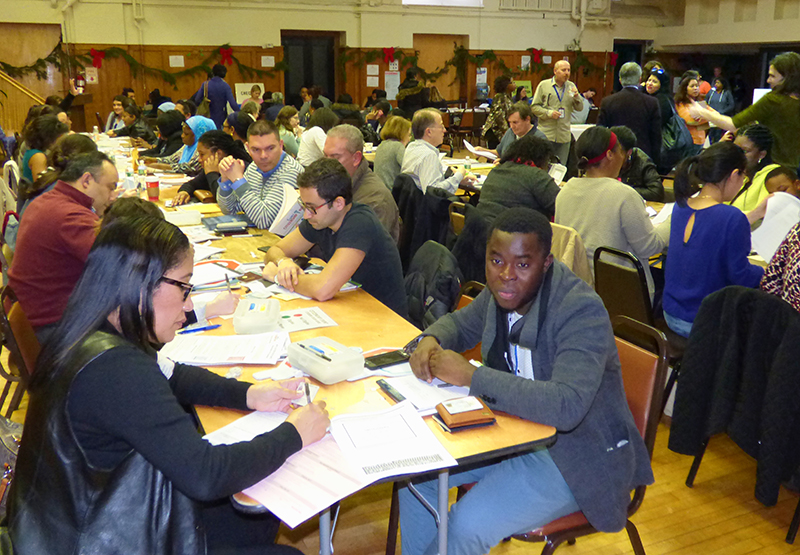NYC Comptroller Stringer report: Costs to apply for citizenship soaring

In December, a full house of would-be citizens filled CUNY’s Citizenship Now event in Greenpoint. Photo by Mary Frost
For many of the city’s immigrants, citizenship is the fulfillment of their American Dream.
Close to 670,000 New Yorkers are eligible to apply for citizenship. According to a report released Wednesday by New York City Comptroller Scott Stringer, however, the costs of the citizenship application process have spiked so high that immigrants may no longer be able to afford becoming full-fledged Americans.
Not only do soaring costs present a barrier to immigrants, Stringer says, but they serve as a drag on the city’s economy. Immigrants who naturalize in New York City experience increases in annual incomes from $1,975 to $3,265, bolstering tax receipts for the city, according to the report.
